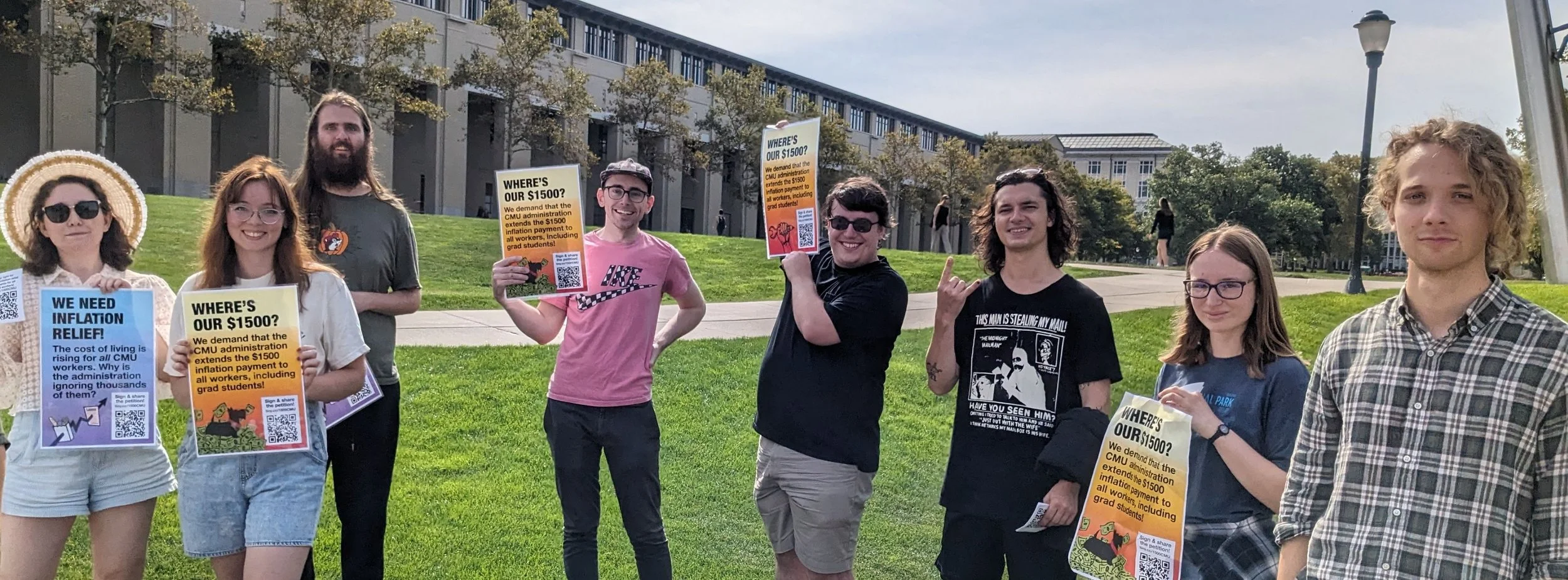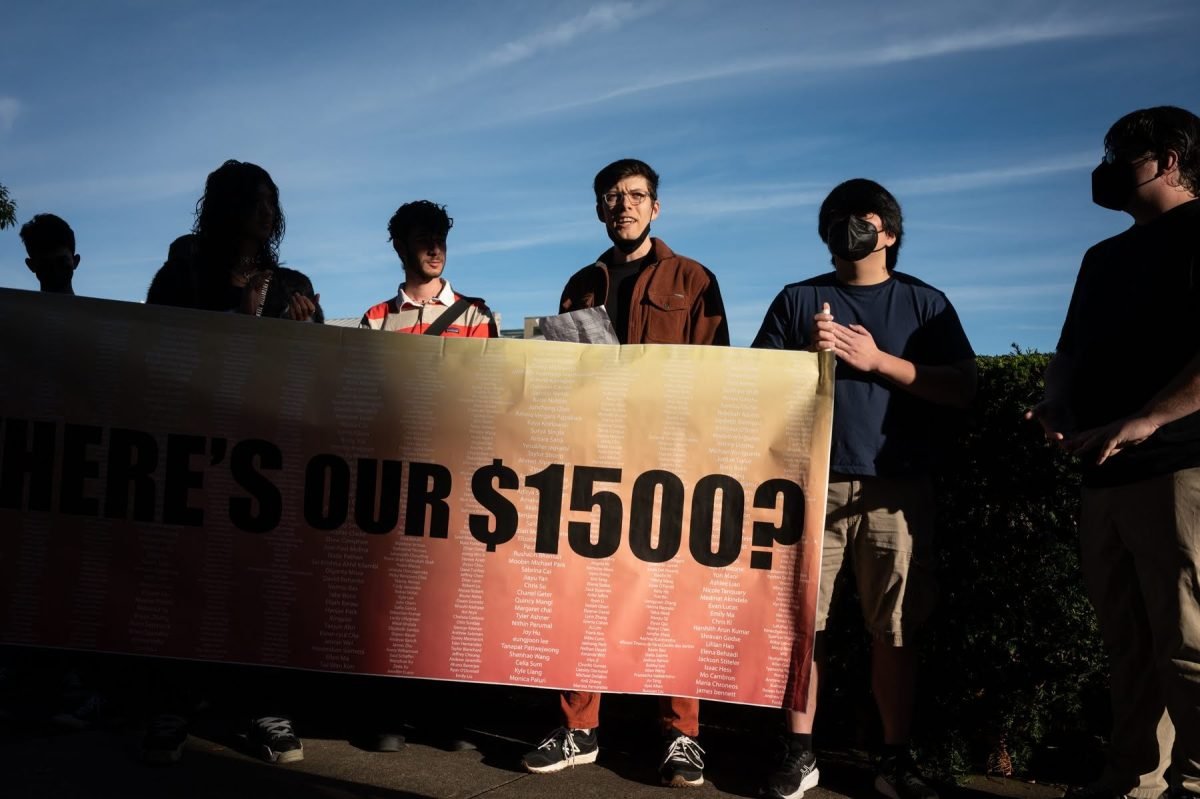We asked nicely, now we’re building a fighting union
By Amzi Jeffs, Workers Strike Back member & organizer with CMU Academic Workers United. Published April 14, 2024
My name is Amzi. I’m a member of Workers Strike Back, and I’m organizing alongside postdocs, grad students, and undergrads to fight for a union at Carnegie Mellon University.
“The working class is back and we refuse to be poor anymore” is the succinct way British union leader Mick Lynch put the current mood of workers. He describes a return to militant strike action to fight for raises and better working conditions which has taken hold not just in Britain, but across the world. We've also crucially seen mass organizing campaigns: a quarter of a million U.S. workers joined a union last year. 60 million U.S. workers say they want a union.
This year has the potential to be a turning point in the American labor movement, with new unions in key workplaces like southern auto plants and Amazon’s KCVG Air Hub in Kentucky.
Academic workers are inspired by these developments. We’re excited to join the wave of union organizing across higher ed, which saw thousands of grad students cast ballots to form unions last year, with on average over 90% of workers voting “yes.” On every single campus, university administrations have refused to give workers what they need without a fight, and serious strike threats have been needed to win first contracts at schools like Northwestern, UChicago, and Johns Hopkins.
I’m a math researcher at Carnegie Mellon University, where academic workers are getting organized to fight for a union. We’re demanding a $50,000 minimum salary for graduate students, cost of living adjustments (COLA) for all workers, financial and legal support for international students, real accountability in cases of discrimination and harassment including an independent grievance process, and much more.
Last Fall we delivered a petition with over 1000 signatures demanding inflation relief directly to CMU’s Provost Jim Garrett, and after two weeks Garrett replied telling workers to make do with “holistic support” – a completely hollow and meaningless promise – instead. We responded by launching CMU Academic Workers United to build a union so that we can confront the CMU administration and win.
Each successful labor struggle — whether it’s on a campus, in a warehouse, or anywhere else — requires workers to go head-to-head with their boss and come out on top. This means disrupting business as usual in the workplace, up to and including strikes to shut down production and profits.
The strongest strikes go beyond the “one day longer, one day stronger” strategy and escalate pressure on the boss by mobilizing the entire working class and labor movement into the struggle. This approach has been especially vital in education strikes, including mobilization of community support in the West Virginia teachers’ wildcat strike in 2018, United Teachers Los Angeles (UTLA) members joining school staff organized under SEIU for a joint strike to shut down the whole LA school system, and the 2023 strike by Temple University grad students which organized essential support from undergrad students.
We need to bring this fighting spirit into every union and every workplace, which is why I’m a member and volunteer with Workers Strike Back. In Pittsburgh, our chapter has gone out to publicly build support for KCVG workers in their fight for a union, and we’ve hosted public meetings for workers to discuss how we can build a fighting labor movement.
CMU Academic Workers United began when a group of us attended a Workers Strike Back meeting about union organizing last spring. It’s crucial that we have rank-and-file organizations like Workers Strike Back to connect workers who are looking for the best methods to fight for change.
Workers Strike Back is about more than just fighting for a union in every workplace — the labor movement is constantly under legal and political attack by the bosses. Recently, Amazon, SpaceX, Starbucks, and Trader Joe’s joined forces to try and undermine existing labor law.
We constantly see politicians step in to “mediate” labor struggles in favor of the bosses, or outright crush them like Biden did to the rail workers’ strike in 2022. These attacks and maneuvers are why we can’t limit our efforts to just the shop floor: the labor movement needs to be prepared to fight political battles, like grad students at Wisconsin Madison who are taking on the notorious anti-union law Act 10. Whether union members or not, all working people have a stake in these fights and the ability to join the struggle. That’s why Workers Strike Back hosted protests across the country to oppose the Supreme Court’s attack on the right to strike in last year’s Glacier Northwest v. Teamsters ruling.
Ultimately, workers need our own political party. In Pittsburgh, Workers Strike Back is meeting this month to discuss going beyond voting “uncommitted” and building a genuine alternative to the rotten two party system.
Now more than ever, we need to reckon with the potential power of an organized, united working class. Act 10 is hated in Wisconsin – after all, workers have borne the brunt of it for thirteen years. Now’s the time to unite the labor movement in Wisconsin around a democratic and fighting strategy to defeat Act 10, and that’s what we’ve started here with Workers Strike Back – but it’s going to take all of us, and we need your help!
Building a union drive and movement of this scale requires serious resources. Can you make a $50 donation to Workers Strike Back today? Better yet, join Workers Strike Back and become part of the struggle to rebuild a fighting labor movement!


